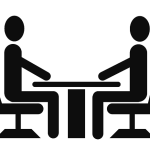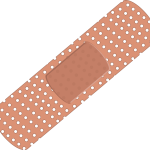Every personal finance guru intones that “bankruptcy is the last resort.”
In my opinion, they have it wrong: bankruptcy is the big gun in getting out of a financial mess.
But it shouldn’t be the last thing you try to get financially healthy. You shouldn’t mess around with lesser solutions if those solutions don’t do the job. Some situations call for the big gun on the spot.
3 situations call for bankruptcy
When you are facing financial trouble, there are three circumstances when it makes sense to file bankruptcy.
None of them is labeled “last resort”.
That kind of thinking keeps people suffering too long thinking they should at least try alternatives, even if those alternatives are inadequate. The delay wastes money spent servicing debt when recovery outside bankruptcy is a lost cause. The resulting stress imperils health.
Putting emotions to the side, let’s walk through those three situations when filing bankruptcy is the right choice, not your “last resort”.
1. You have a crisis
Foreclosure, repossession, or wage garnishment threaten the foundation of your finances. Without a house, a car, and a paycheck, not much about day-to-day life is manageable.
Bankruptcy may allow you to keep something that you would otherwise lose to creditors without bankruptcy.
Bankruptcy provides the “time-out” that stops all collection action.
The automatic stay triggered by filing bankruptcy has the force of law to make everyone stop in their tracks and move the action to bankruptcy court.
Sometimes, just getting served with a collection lawsuit seems like a crisis.
A lawsuit, after all, is the precursor to a judgment that leads to garnishment, liens, or levies on your assets.
Being served isn’t really a crisis, but it’s a wake-up call that trouble looms ahead.
Usually, actually getting sued is often just a symptom of a much larger problem: it’s not just the creditor who filed this suit, but the bunch of other creditors who aren’t getting paid either.
Bankruptcy gets you a moment to consider the big picture, and provides the legal forgiveness of most unsecured debts. It’s the long term effect of the discharge that is precious.
2. You see the big picture
It doesn’t require a crisis to look at your balance sheet and realize you can’t dig your way out of a financial hole.
A lifetime of minimum payments on suffocating debt is no life. Keep making minimum payments and the debt doesn’t even die of old age, because payments extend the statute of limitations.
Healthy finances include a reserve for emergencies and serious savings for your old age. Keep feeding VISA and AMEX and you’ll be eating cat food at 70.
Bankruptcy exists because lawmakers understood that the economy is better off when people aren’t driven into the economic underground, and when families have the chance to be self sufficient.
It doesn’t matter how got you into debt: most bankruptcies result from events the individual didn’t control, like job loss, illness, or divorce. And now, add pandemic.
Whether you’re in financial trouble because of bad luck or bad judgment, a fresh financial start is energizing.
3. You’re worrying yourself sick
How we feel about owing money has a huge impact on physical and mental health.
It’s unfortunate in a way that our societal tendency to lionize those who doggedly pay off their debts: the heroic story of slaying debts blinds us to the fact that stress kills.
True story of retired couple who made wrong choices about who to pay
And stress makes us stupid: actually, measurably less likely to make good decisions going forward. Collection pressures force too many folks make foolish choices about which creditor to pay.
So, when money worries interfere with sleep, digestion, work or relationships, it’s worth considering whether a bankruptcy discharge would improve the situation.
Even elders and the disabled, who are often legally protected from collection by non bankruptcy laws, decide to discharge debts so the bills are gone legally, for all time. And they enjoy peace at home.
Reasons for bankruptcy overlap
These three reasons for filing bankruptcy aren’t mutually exclusive: you can have a crisis and see the big picture.
But the idea that bankruptcy is only a last resort, when you’ve exhausted all other avenues, is just flat wrong.
Bankruptcy should not be taken lightly, but neither should it be the last option.
The sooner you look at the big picture provided by bankruptcy, the less likely you are to waste money trying to pay impossible debts or make catastrophic decisions like invading retirement or borrowing against your house to pay dischargeable debts.






